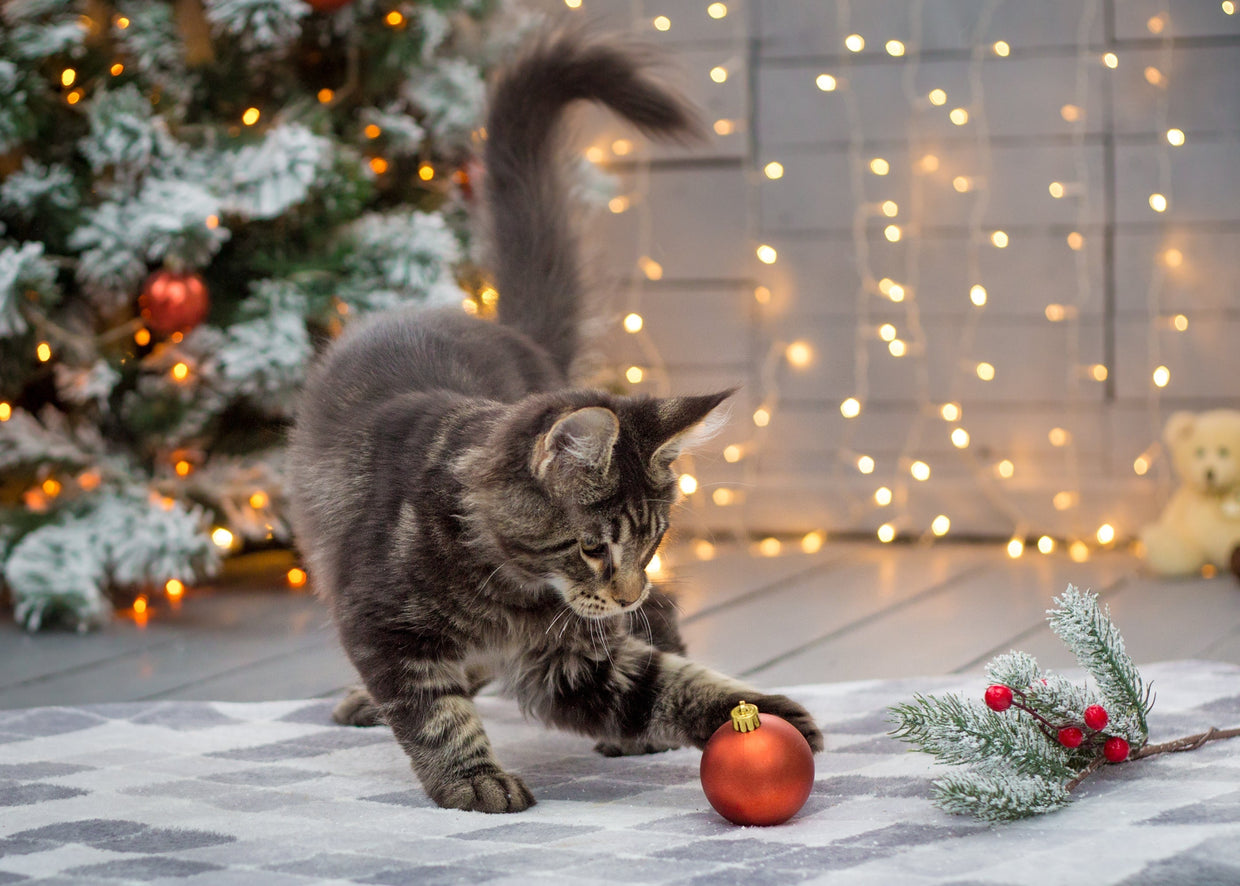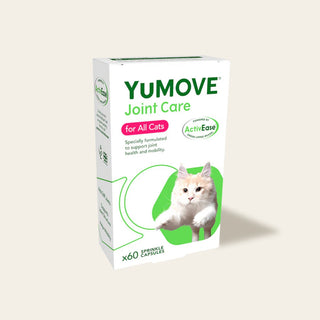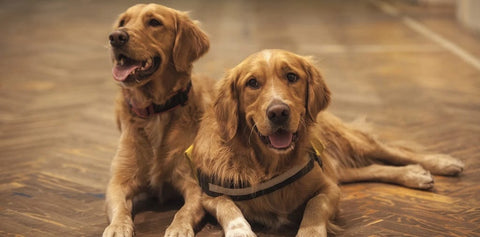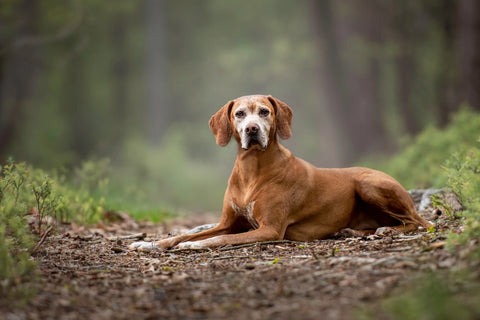

A cat’s Christmas dinner
Cats are naturally curious creatures, so it goes without saying they’ll want to be part of this year’s festive family fun. And, when they’re not busy hiding in the piles of discarded wrapping paper, or knocking baubles off the tree, they’ll soon be sniffing around the kitchen to see what’s happening there too. But, before you share any Christmas treats with your feline friend, it’s important to you know what’s safe for them to eat, and what’s not. Read on to find out...
Christmas morning breakfast
Cream cheese and smoked salmon bagels
Although this may sound like the perfect treat for your furry friend, both cream cheese and smoked salmon are off the menu. As most cats are naturally lactose intolerant, cream cheese - which contains diary - could upset your pet’s tummy. And while smoked salmon is packed with nutritious vitamins and omega-3 fatty acids, it’s also high in salt which can be dangerous to cats.
Bacon sandwiches
Like lots of humans, cats love the taste and smell of a bacon butty! But please don’t be tempted to share. Bacon is high in fat and salt and too much of it can cause tummy upsets such as indigestion and diarrhoea, so a cat digestive care supplement could help. The best bet for breakfast is to stick to your cat’s regular food routine and save the treats for later.
Christmas dinner starters
Prawn Cocktail
Prawns! Now we’re talking. Cooked prawns are a great source of vitamins and protein, and your cat can happily enjoy them in small quantities. But, before feeding prawns to your cat, make sure you rinse off any salty brine water or Prawn Cocktail Marie Rose dressing which contains lots of sugar.
Chicken Liver PateCats love cooked liver, and it contains lots of health boosting properties including iron, vitamins A, B, C and D and protein. If you’re making your own chicken liver pate, it’s fine to share a small amount of cooked liver with your pet before you mix it with other ingredients.
However, if you’ve opted for a shop bought variety, you shouldn’t feed this to your pet. As well as being high in salt, pre-made pates are likely to contain other ingredients which can be harmful to your cat, particularly onion and garlic.
Christmas dinner - Main course
As you tuck into a delicious Christmas roast, the good news is there’s plenty for your cat to enjoy too. Small portions of cooked turkey, chicken, goose and beef will all be welcome treats as long as they’re unseasoned, don’t have any sauces or spicy condiments on them and are bone-free.
It would be sensible to also avoid feeding any meat with skin, as this can be very fatty.
Christmas dinner - Dessert

When it comes to dessert, your cat might not be too interested and there’s a good reason for that - he or she can’t taste sweet things! With only around 480 taste buds - compared to 1,700 in dogs and up to 4000 in humans - your cat doesn’t have any sweetness receptors.
This is actually good news when it comes to Christmas pudding because two of its main ingredients - raisins and alcohol - are toxic to cats. Of course, if the Christmas pud comes with a side order of fresh cream, your cat may have other ideas.
But, no matter how lovingly he or she rubs around your ankles, don’t be tempted to give in. Cream, like milk and other dairy products, contains lactose which can cause tummy upsets, discomfort, vomiting and diarrhoea in your cat. Definitely best avoided on Christmas Day!
The cheese board
Although cheese contains lactose, your cat may appreciate a small amount of low lactose cheese such as cheddar or Swiss cheese.
Again, moderation is key and even these cheeses mustn’t be given to cats with known medical issues. Soft cheeses and blue cheeses - such as mozzarella, cream cheese, cottage cheese, brie, stilton and camembert - can be harmful to cats and should be avoided at all costs.
5 festive food safety tips for your cat:
Cats are generally more discerning diners than their canine counterparts but that doesn’t mean you shouldn’t be cautious in the kitchen. Follow these top tips to ensure everyone has a happy and healthy day to remember.
- Limit the number of treats you give to your cat throughout the festive period. As far as possible stick to their usual feeding routine and, if you are giving some extra treats, remember to reduce their usual food amount accordingly.
- Make sure your cat doesn’t have access to tempting foods that might make them poorly – for example, a leftover plate with cream or bones on it.
- Keep your cat out of the kitchen when you’re prepping or cooking food - it will remove the temptation for both of you.
- Don’t feed your kitty scraps at the table - and make sure your guests know the rules too.
- Be deliberate about what you’re giving your cat. If you decide to give him or her a little treat, place it in their bowl so you don’t overfeed.
Avoid festive feline frazzle

Amid all the excitement of Christmas Day, your cat may find the extra visitors and heightened noise levels stressful. You might notice that they hide more, eat less or become unusually aggressive.
Help keep them calm by:
● Creating a cosy place for them to escape to
● Putting their litter tray and food bowls in quiet, safe places
● Keeping them apart from visiting animals
● Making sure children are calm and supervised around them
YuMOVE’s Calming Care for Cats can also help. Made with scientifically backed ingredients, it helps to ease anxiety and promote calm behaviours. For more advice about YuMOVE Calming Care for Cats supplements, please contact our friendly advice line on 01462 416866 or email us at hello@yumove.com.





